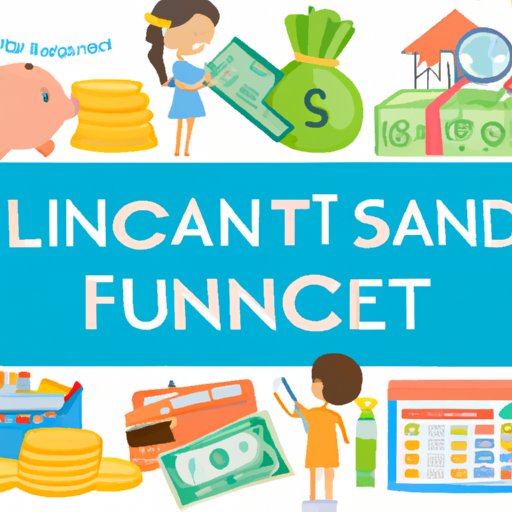Introduction: What is Basic Financial Literacy?
Financial literacy is the ability to understand and effectively use various financial skills, such as budgeting, saving, investing, and planning for retirement. It is an essential life skill that can have a significant impact on our financial well-being. Unfortunately, many people lack basic financial literacy, which can lead to financial difficulties and debt. In order to prevent these issues, it is important to understand the basics of financial literacy.
Understanding Budgeting and Saving
Creating a budget is an essential part of managing your finances. A budget allows you to track your income and expenses, so you can see where your money is going. By setting limits on how much you can spend in certain categories, you can avoid overspending and ensure that you have enough money saved for future goals. Additionally, budgeting can help you prioritize spending, so you can make sure that your money is being spent on what’s most important to you.
Saving money is also an important part of financial literacy. Having an emergency fund can help you cover unexpected expenses or financial setbacks. Additionally, having money saved for future goals, such as buying a home or starting a business, can help you achieve long-term success. There are several strategies for saving money, such as automating deposits into a savings account, using cashback apps, and cutting back on unnecessary expenses.

Building Credit and Establishing Good Financial Habits
Having good credit is essential for getting loans and other types of financing. Good credit can also help you get lower interest rates, which can save you money in the long run. To build good credit, you should make sure to always pay your bills on time, keep your credit card balances low, monitor your credit report for errors, and avoid taking out too much debt. Additionally, establishing good financial habits, such as creating a budget and tracking your spending, can help you stay on top of your finances.
Investing Strategies for Beginners
Investing is another important component of financial literacy. There are several different types of investment accounts, such as stocks, bonds, mutual funds, and exchange-traded funds (ETFs). Each type has its own risks and rewards, so it’s important to do research before investing. Additionally, it’s important to consult with a financial advisor to make sure that your investments are appropriate for your goals and risk tolerance.
The Benefits of Financial Planning and Retirement Planning
Financial planning is essential for achieving long-term success. It involves setting goals, such as saving for retirement, and creating a plan to reach those goals. When creating a financial plan, it’s important to consider factors such as your income, expenses, and debt. Additionally, retirement planning is an important part of financial planning. When creating a retirement plan, it’s important to consider factors such as your age, lifestyle, and expected expenses.
Teaching Children Financial Literacy
Teaching children about money is an important part of financial literacy. Teaching kids about money helps them develop good financial habits and gives them the tools they need to make smart financial decisions. There are several strategies for teaching kids about money, such as giving them an allowance, teaching them how to budget, and helping them open a savings account. Additionally, teaching kids about investing can help them gain a better understanding of the stock market and other financial concepts.
Conclusion
Financial literacy is an essential life skill. Understanding the basics of budgeting, saving, building credit, investing, and retirement planning can help you achieve financial success. Additionally, teaching children financial literacy can help them develop good financial habits and give them the tools they need to make smart financial decisions. With the right knowledge and strategies, anyone can become financially literate.
(Note: Is this article not meeting your expectations? Do you have knowledge or insights to share? Unlock new opportunities and expand your reach by joining our authors team. Click Registration to join us and share your expertise with our readers.)
